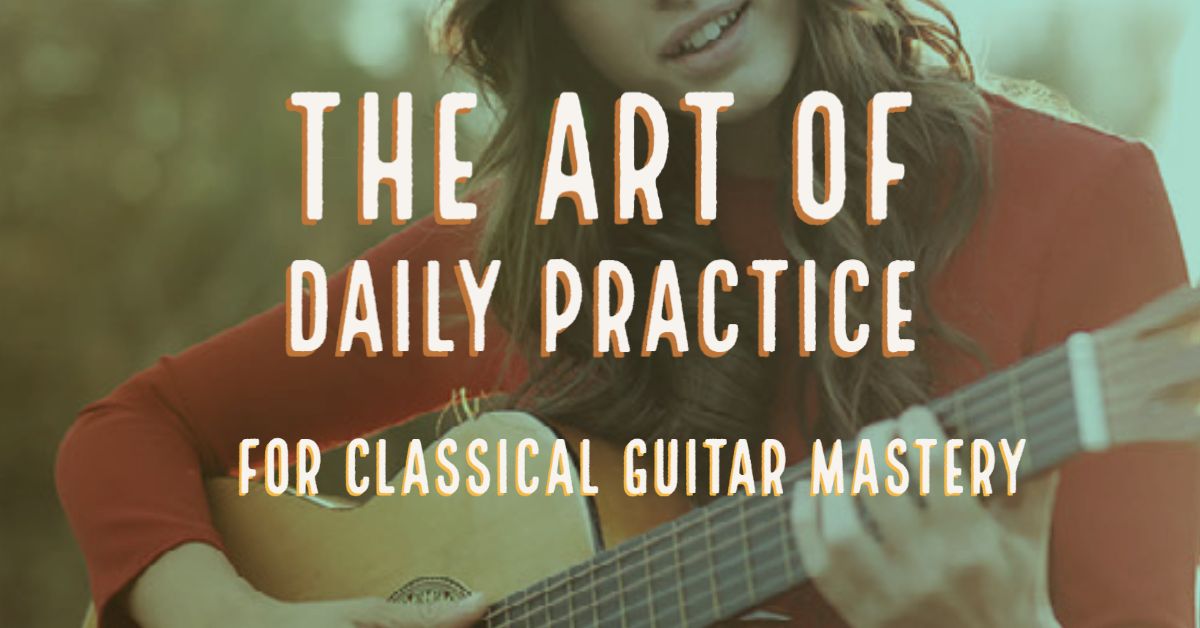Playing classical guitar is an art that requires consistent practice to perfect. Regular practice is crucial for students who want to become proficient in playing this musical instrument. With daily practice, you can build muscle memory, develop your skills, and improve your overall technique. Establishing a daily routine and following a structured practice session can help you make progress in your classical guitar lessons.
Daily Routine Establishment
One of the most important aspects of regular practice is establishing a daily routine. This routine should be tailored to your schedule and needs and should be consistent throughout the week. It’s important to find a time that works for you and stick to it. Consistency is key when it comes to regular practice. By practicing at the same time every day, you will be able to build a habit that becomes part of your daily routine.
If you’re struggling to establish a daily routine for your classical guitar practice, don’t worry! It’s a common challenge that many students face. However, it’s important to overcome this challenge to make progress and achieve your goals. To help you establish a daily routine and stay motivated in your practice, I highly recommend taking my course “Motivate Yourself to Practice Guitar.” In this course, you’ll learn practical strategies for building a daily practice routine, setting goals, and staying motivated in your practice.
Practice Session Structure
Once you have established a daily routine, the next step is to structure your practice sessions. A well-structured practice session can help you make progress and stay motivated. Here is a simple structure that you can follow:
Warm-Up Exercises:
Begin your practice session with warm-up exercises. These exercises are designed to help you loosen up and prepare your fingers for playing. Warm-up exercises might include scales, arpeggios, and finger exercises.
Technique Practice:
After your warm-up exercises, you can move on to technique practice. This is the time to focus on specific techniques that you want to improve. For example, if you’re struggling with fingerpicking, you might practice fingerpicking patterns or exercises.
Repertoire Practice:
Once you’ve worked on your technique, it’s time to practice your repertoire. This is the part of your practice session where you focus on playing actual pieces of music. Choose a piece that you’re currently working on and practice it until you can play it from start to finish.
Sight-Reading:
If you have time, you can finish your practice session with some sight-reading practice. This is the time to work on reading music and playing new pieces that you haven’t seen before.
15 Minutes a Day vs. 2 Hours on the Weekend
When it comes to regular practice, consistency is more important than duration. It’s better to practice for 15 minutes a day than to practice for two hours on the weekend. By practicing for a short amount of time every day, you will be able to build muscle memory and improve your techniques more effectively.
When you practice for a long time, you’re more likely to get tired and lose focus. This can lead to mistakes and frustration. By practicing for shorter periods of time, you can stay focused and avoid burnout.
Another benefit of practicing for short periods of time every day is that it’s easier to fit into your schedule. Even if you have a busy day, you can usually find 15 minutes to practice. By making regular practice a priority, you can improve your skills and achieve your goals.
Conclusion
Regular practice is essential for anyone who wants to become proficient in playing the classical guitar. By establishing a daily routine and following a structured practice session, you can build muscle memory, improve your technique, and make progress in your lessons. Remember, it’s better to practice for 15 minutes a day than to practice for two hours on the weekend
